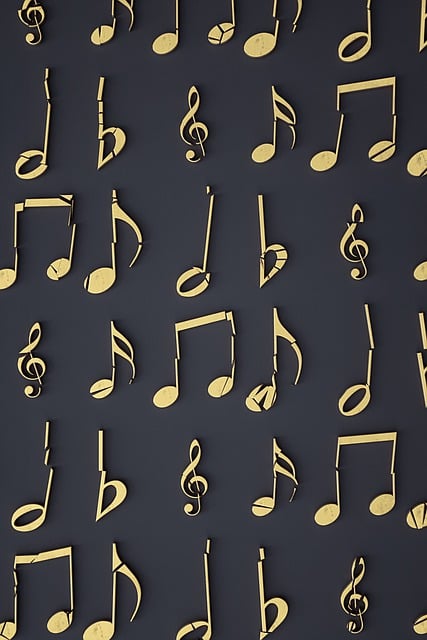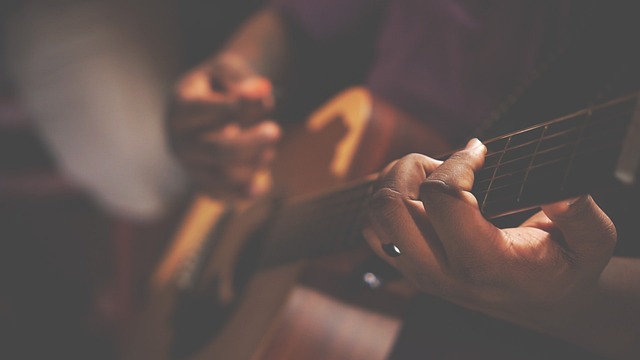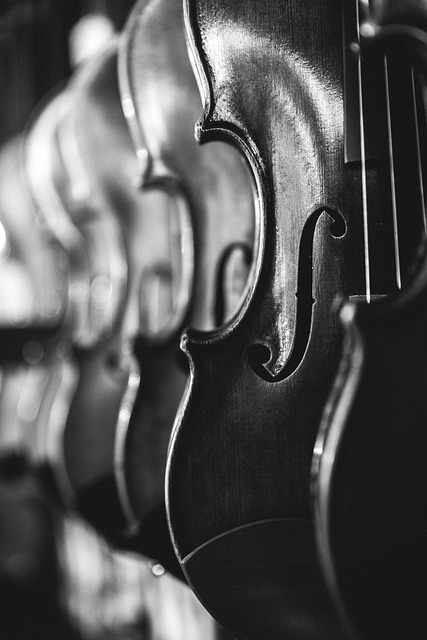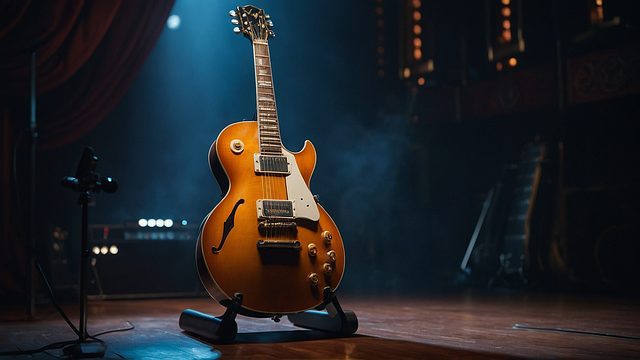AI has dramatically transformed music production, providing tools that assist both amateur and professional musicians, composers, and producers. These technologies democratize music creation, enabling individuals without formal training to produce high-quality tracks. AI algorithms can generate melodies, suggest harmonies, and even create entire songs, fostering innovation and artistic expression among ai musicians. The collaboration between human intuition and AI models allows for unique sonic landscapes, streamlined workflows, and boundless inspiration. As AI continues to evolve, it will shape a future where human artists and AI work seamlessly together, while ethical considerations regarding transparency, attribution, and the impact on human creativity remain crucial.
In the ever-evolving landscape of music production, Artificial Intelligence (AI) is no longer a futuristic concept but a game-changer. This blog delves into the profound impact of AI on the creative process for ai musicians, offering a wealth of knowledge and practical tools. From understanding the fundamentals of AI music to exploring its role in composition and generation, we navigate the present and future of this revolutionary technology. Discover how AI is reshaping the industry, addressing ethical considerations, and unlocking boundless creative potential for musicians worldwide.
- The Rise of AI in Music Production: A Game-Changer for Musicians
- Understanding AI Music Tools: Unlocking Creative Potential
- Enhancing Musical Composition: AI's Role in Creating Melodies
- Music Generation and Collaboration: Working with AI to Produce Art
- Overcoming Challenges: Ethical Considerations for AI Musicians
- The Future of AI in the Music Industry: Trends and Predictions
The Rise of AI in Music Production: A Game-Changer for Musicians

The integration of Artificial Intelligence (AI) into music production has marked a significant turning point for the industry, transforming the creative process and empowering ai musicians in unprecedented ways. This revolutionary technology offers an array of tools that can assist both amateur and professional composers, producers, and performers. AI algorithms can generate melodies, suggest harmonies, and even create entire songs, providing a vast pool of musical ideas to draw from.
For musicians, the benefits are clear: faster production times, endless creative possibilities, and access to high-quality compositions. These tools democratize music creation, enabling individuals without extensive training to produce professional-grade tracks. As AI continues to evolve, its impact on the music industry will undoubtedly grow, shaping a future where collaboration between human artists and artificial intelligence becomes the norm.
Understanding AI Music Tools: Unlocking Creative Potential

AI music tools have revolutionized the creative process for ai musicians, offering unprecedented opportunities for innovation and expression. These advanced technologies enable composers and producers to explore new sonic landscapes, streamline production workflows, and push artistic boundaries. By leveraging machine learning algorithms, AI music generators can compose melodies, generate harmonies, and even create entire songs, providing a wealth of inspiration for artists.
One of the key benefits is accessibility; AI platforms democratize music creation, allowing individuals without formal musical training to experiment and produce high-quality compositions. These tools often come equipped with intuitive interfaces, making them user-friendly. Moreover, AI music technology facilitates collaboration by enabling musicians to quickly iterate and refine ideas, fostering a dynamic and inspiring creative environment for ai musicians worldwide.
Enhancing Musical Composition: AI's Role in Creating Melodies

AI has emerged as a game-changer for musicians and music producers, offering innovative tools that enhance the creative process. One of its most significant roles is in musical composition, particularly when it comes to generating melodies. These advanced AI algorithms can analyze vast datasets of existing music, patterns, and structures to compose unique and captivating tunes. By learning from diverse musical genres and styles, AI models can assist musicians in breaking creative blocks and exploring new sonic territories.
For ai musicians, these tools provide a collaborative environment where human intuition and AI capabilities merge. Musicians can input parameters, such as desired keys, tempos, or emotional themes, and the AI will generate melodic sequences tailored to their vision. This collaboration allows for efficient melody creation, providing a starting point for further refinement and artistic expression. With its ability to offer fresh perspectives, AI technology is revolutionizing how music is composed, opening doors to endless possibilities for musical exploration.
Music Generation and Collaboration: Working with AI to Produce Art

Music Generation and Collaboration: Working with AI to Produce Art
In the realm of music production, Artificial Intelligence (AI) tools are revolutionizing how musicians create and collaborate. AI musicians now act as creative partners, offering a vast array of possibilities for composition, arrangement, and sound design. These intelligent systems can generate melodic themes, suggest harmonies, and even compose entire tracks based on user input or emotional cues. By leveraging AI music generation, composers and producers can explore new sonic landscapes and push artistic boundaries without sacrificing productivity.
Collaboration with AI also opens doors to innovative production techniques. Musicians can work alongside these tools to refine their compositions, achieve complex arrangements, and experiment with diverse styles. AI algorithms can provide instant feedback, suggest improvements, and even adapt to the musician’s unique creative vision. This symbiotic relationship between human intuition and machine intelligence fosters a dynamic and productive environment, ensuring that music production continues to evolve and captivate audiences in new and exciting ways.
Overcoming Challenges: Ethical Considerations for AI Musicians

As AI musicians gain popularity, it’s essential to address ethical considerations surrounding their use. One primary challenge is ensuring transparency and credit for AI-generated content. Musicians must be upfront about the role of artificial intelligence in their creations to maintain integrity and respect for human artists. Additionally, proper attribution and royalty systems need to be established to support both AI developers and the musicians who inspire or contribute to AI models.
Another ethical concern is the potential impact on human creativity and job security. While AI tools offer exciting possibilities, there’s a risk of devaluing human skill and artistry. Encouraging collaboration between human musicians and AI can mitigate these issues, fostering innovation while preserving the unique qualities of human expression.
The Future of AI in the Music Industry: Trends and Predictions

The future of AI in the music industry is an exciting prospect, filled with immense potential for innovation and creativity. As AI continues to evolve, its impact on musicians and music production will only grow more significant. One of the most promising trends is the development of advanced AI music tools designed specifically for ai musicians. These tools can assist in composition, offering personalized recommendations based on individual styles and preferences. They can also enhance sound design, enabling artists to create unique and diverse musical textures.
Predictably, we’ll see more sophisticated AI-driven music generation, with algorithms capable of creating entire songs or soundtracks, opening doors for collaborative projects between human musicians and AI. Additionally, natural language processing (NLP) will play a bigger role, allowing for easier interaction between artists and AI systems, making music production more accessible and efficient. This shift towards AI integration promises to democratize the industry, empowering not just established ai musicians but also aspiring artists with innovative tools to express their creativity.
In conclusion, the integration of AI music tools has revolutionized the way ai musicians create and collaborate. From enhancing composition to enabling innovative music generation, these technologies offer immense potential for artistic expression. As we look towards the future, AI’s role in the music industry is set to grow, shaping trends and predictions that promise to transform musical production. By understanding and embracing these tools, ai musicians can unlock new creative frontiers and contribute to a dynamic, ever-evolving landscape of sound.
